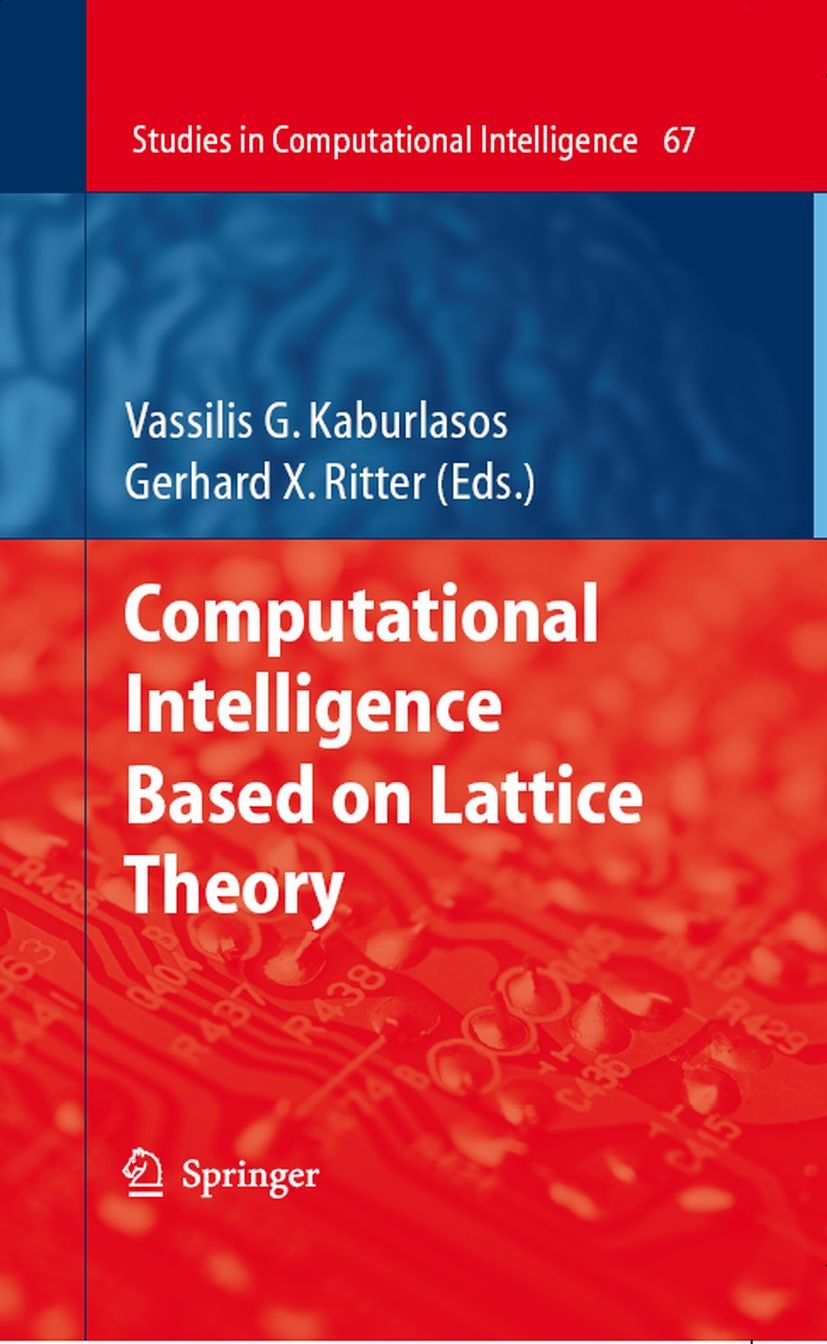| 書目名稱 | Computational Intelligence Based on Lattice Theory | | 編輯 | Vassilis G. Kaburlasos,Gerhard X. Ritter | | 視頻video | http://file.papertrans.cn/233/232380/232380.mp4 | | 概述 | Resent results of Computational Intelligence Based on Lattice Theory.Outcome of a special session held during in WCCI 2006.Includes supplementary material: | | 叢書名稱 | Studies in Computational Intelligence | | 圖書封面 |  | | 描述 | A number of di?erent instruments for design can be uni?ed in the context of lattice theory towards cross-fertilization By“l(fā)atticetheory”[1]wemean,equivalently,eitherapartialordering relation [2,3]ora couple of binary algebraic operations [3, 4]. There is a growing interest in computational intelligence based on lattice theory. A number of researchers are currently active developing lattice theory based models and techniques in engineering, computer and information s- ences, applied mathematics, and other scienti?c endeavours. Some of these models and techniques are presented here. However, currently, lattice theory is not part of the mainstream of com- tationalintelligence.Amajorreasonforthisisthe“l(fā)earningcurve”associated with novel notions and tools. Moreover, practitioners of lattice theory, in s- ci?c domains of interest, frequently develop their own tools and/or practices without being aware of valuable contributions made by colleagues. Hence, (potentially) useful work may be ignored, or duplicated. Yet, other times, di?erent authors may introduce a con?icting terminology. The compilation of this book is an initiative towards proliferating est- lished knowledge in the hope to f | | 出版日期 | Book 2007 | | 關(guān)鍵詞 | Computational Intelligence; Fuzzy; Lattice Theory; Prolog; architecture; cognition; construction; fuzzy set | | 版次 | 1 | | doi | https://doi.org/10.1007/978-3-540-72687-6 | | isbn_softcover | 978-3-642-09174-2 | | isbn_ebook | 978-3-540-72687-6Series ISSN 1860-949X Series E-ISSN 1860-9503 | | issn_series | 1860-949X | | copyright | Springer-Verlag Berlin Heidelberg 2007 |
The information of publication is updating

|
|
 |Archiver|手機(jī)版|小黑屋|
派博傳思國際
( 京公網(wǎng)安備110108008328)
GMT+8, 2025-10-10 18:45
|Archiver|手機(jī)版|小黑屋|
派博傳思國際
( 京公網(wǎng)安備110108008328)
GMT+8, 2025-10-10 18:45


